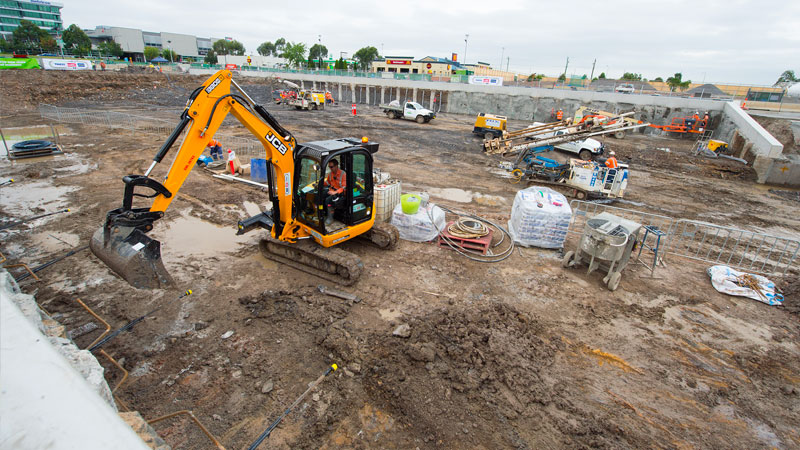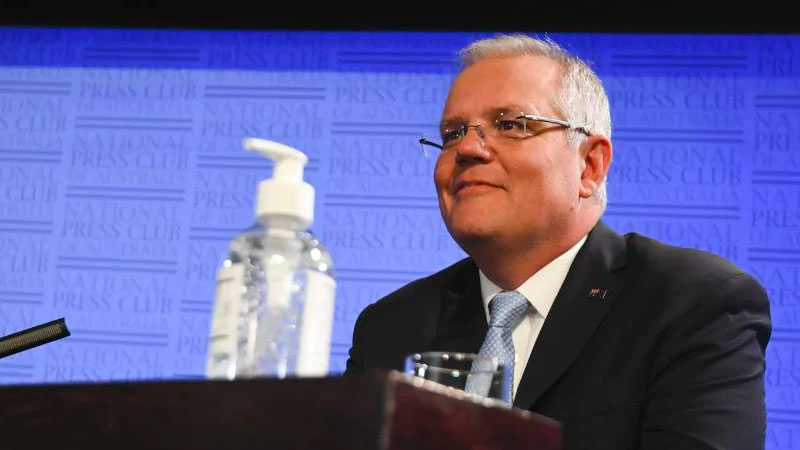Trades, Construction Needed to Prop Up Covid Economy
Peak construction groups from across Australia are calling for renewed stimulus packages to prop up the hard hit property sector which has contracted sharply in the wake of the coronavirus crisis.
The Australian Construction Industry Forum (ACIF) has proposed a $66 billion action plan which it says will galvanise building and construction activity by bringing forward select “shovel-ready” projects.
The scheme would target projects based on feasibility and economic viability and not be specific to commercial and residential construction including electricity networks, water projects, road construction and telecommunications.
ACIF said that without a clear path forward the construction sector would face a deeper fall off than recognised, with potentially harmful and lasting implications for unemployment.

“We don’t think that there is a single magic bullet to fix our current problems or drive the much needed recovery in building activity,” ACIF spokesperson Kerry Barwise told The Urban Developer.
“In fact, we are more than a bit worried that glamorous, large and expensive projects are probably not the best way to go.
“We think that the right thing to do is to focus on areas where we can all be confident that there is scope to produce buildings that are an asset in the medium to longer term where they will be worth more than they cost.”
The scheme would seek to develop a bridge to recovery for the sector by aiming to bringing forward select projects, including areas like social housing, health, aged care or facilities that would enhance safety.
“We would look to bring forward building and construction activities that have already been subject to rigorous independent assessment processes and are scheduled for development later in the 2020’s,” Barwise said.

Similarly, The Urban Development Institute of Australia (UDIA) has proposed a $4.5 billion housing stimulus fund.
The UDIA wants fast-tracked approvals for greenfield developments on the urban fringe and “supercharging” of urban renewal sites across metro areas.
“The plan positions the industry as central to the nation’s economic prosperity and outlines a series of immediate steps for federal and state governments to take,” UDIA chief executive Danni Hunter said.
“With the right mix of targeted incentives, regulatory reform and collaborative action by federal and state governments, the industry is key to super-charging the nation’s economic recovery.”
Skills push to offset construction losses
Delivering a speech at the National Press Club in Canberra on Tuesday, prime minister Scott Morrison flagged the importance of training up tradespeople and skilled workers.
Morrison said the focus on education and training would be pivotal in fast-tracking job creation and would better support the Covid-19-hit economy.
The federal government's “Job Maker” policy plan will also take a new approach to industrial relations in the hope of gaining support from unions and employers.
Morrison said the new initiatives would renegotiate a “fundamentally flawed” national skills and workforce agreement with the states to apply stricter rules on the way it spends $1.5 billion in federal funding every year.
The newly-established National Skills Commission will also be tasked in providing detailed labour market analysis to uncover skills shortages.

Master Builders chief executive Denita Wawn said industrial relations and vocational education reform have long been areas of high priority for its members around the country.
“We support the Prime Minister’s call for employer and employee representatives to put aside 'ideological posturing' and work together to ensure the viability of the businesses that employ Australians,” Wawn said.
Master Builders said it had forged a cooperative dialogue with the CFMMEU and the AWU to ensure the viability of the building and construction sector during the Covid-19 health crisis.
Under its own economic modelling Master Builders has also called for $13.2 billion in stimulus to produce $30.9 billion in gross domestic product while creating 105,500 construction jobs.
“Work for builders and tradies in 2020/21 is fast evaporating and the indications are that 2021/22 will not be much better,” Wawn said.
“There is no time to spare in meeting this threat to the viability of nearly 400,000 building business and the jobs of 1.2 million people employed in our industry.”
In order to facilitate the proposed package Master Builders has also called for the formation of a new taskforce in order to fast-track construction work.















